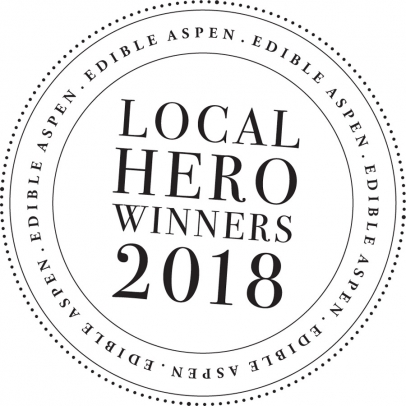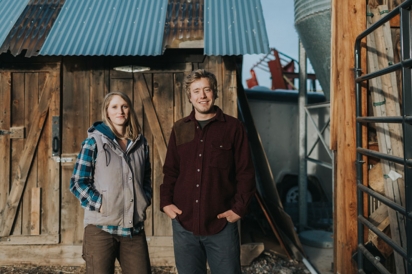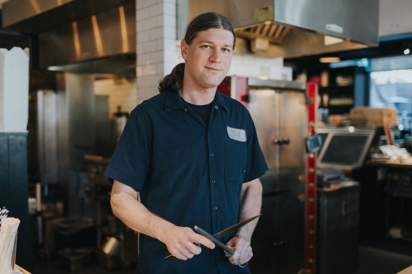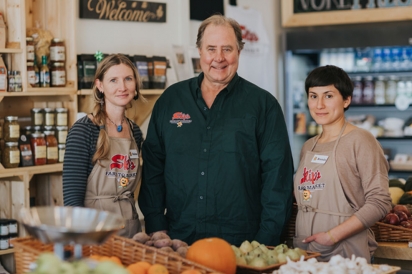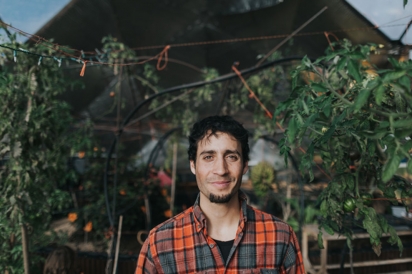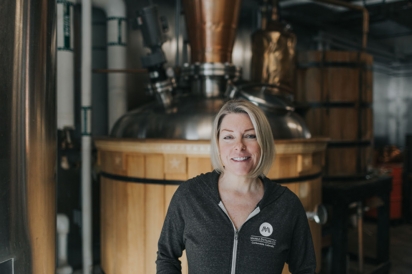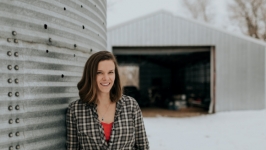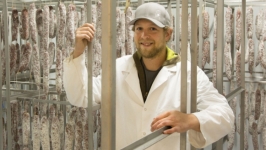Local Heroes 2018
Each year we ask readers to nominate their favorite food-related producers, artisans, educators and innovators in the region for our Local Hero Awards. This year’s winners share a common thread: sustainability, and a commitment to supporting our foodshed. From an award-winning distiller to a nonprofit founder, we celebrate these hardworking, passionate individuals, some of whom are making a difference not just in our community, but nationally as well. Keep up the good (and delicious) work. —LM
FARMER | FARM
Harper Kaufman and Christian LaBar | Two Roots Farm
Harper Kaufman and Christian LaBar started farming as interns in 2013, and simultaneously fell in love with each other and with producing food. That love extends to the region where they live and farm, so in 2015 they established Two Roots Farm in Missouri Heights, cultivating a diverse range of crops on a one-acre plot of leased land.
“Our vision is to provide a place where folks can connect with the land and people who grow their food,” says Kaufman. Community and encouraging fledgling farmers are part of what drives the couple to work so hard. Kaufman has launched organizations to strengthen the voice of farmers regionally and nationally, such as the Roaring Fork Farmers and Ranchers, a chapter of the National Young Farmers Coalition, and the Rocky Mountain Farmers Union, which advocates for issues in farming. Says Kaufman, “We also do farm tours and talk strategy and connect people to those doing work in the industry.”
Two Roots sells produce at the Aspen Saturday Market, supplies local restaurants like Cache Cache, Pan and Fork, Free Range Kitchen, Allegria and Pine Creek Cookhouse, and operates a CSA from June through September.
Even on such a small plot, through successive planting Two Roots grew 26,000 pounds of food last year, from greens to root vegetables. Next steps include starting the three-year organic certification process—something the couple consider an investment in the future.
“We want to join the movement in that way and better help people understand what we’re doing,” Kaufman says. TwoRootsFarm.com | eA
CHEF | RESTAURANT
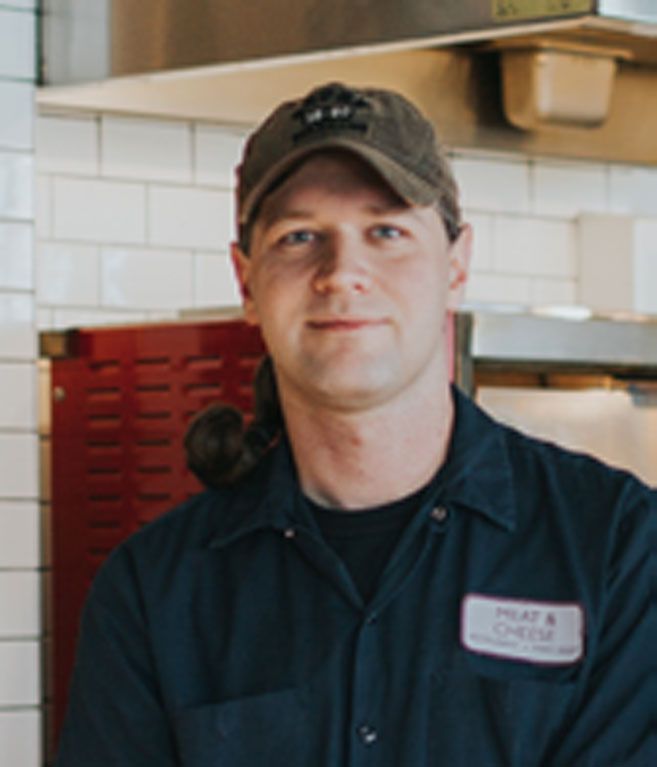
Carson Kennedy | Meat & Cheese Restaurant and Farm Shop
South Dakota native Carson Kennedy, executive chef at Meat & Cheese, says his Midwestern roots make him partial to comfort foods. But, he says, “It’s fun to add our own twist at the restaurant. We call what we do ‘global farmhouse cuisine’: We take local ingredients and infuse them with Asian, Mediterranean and Middle Eastern flavors.”
Kennedy started working in kitchens as a dishwasher at the age of 15. His late father continues to be a source of inspiration. “He was a great lover of food and got so much satisfaction out of sharing things he made,” he says.
That pride is part of what drew Kennedy to Meat & Cheese, where he started as a sous chef three years ago; he was promoted to his current position a year ago. He moved to Aspen for the job after hearing about the restaurant from his cousin Patrick Kennedy, the former salumiere for one of owner Wendy Mitchell’s former businesses.
Meat & Cheese changes its menu four times a year to honor the seasons, with an emphasis on local ingredients; in the past, spring dishes have included Moroccan flat iron steak with cumin-carrot salad and turmeric couscous, a harissa lamb sandwich and lamb falafel meatballs with mint tahini sauce.
Still, for Kennedy, it always comes back to the basics (his chicken and black rice soup earns raves from diners). “The most important thing to me is good food and knowing where it comes from, but our entire staff enjoys the personal experience we bring to our guests, in an environment that I feel is unique to Aspen. As a chef, I love that I’m able to see customers take their first bite and watch a smile come over their face.” MeatAndCheeseAspen.com | eA
FOOD SHOP
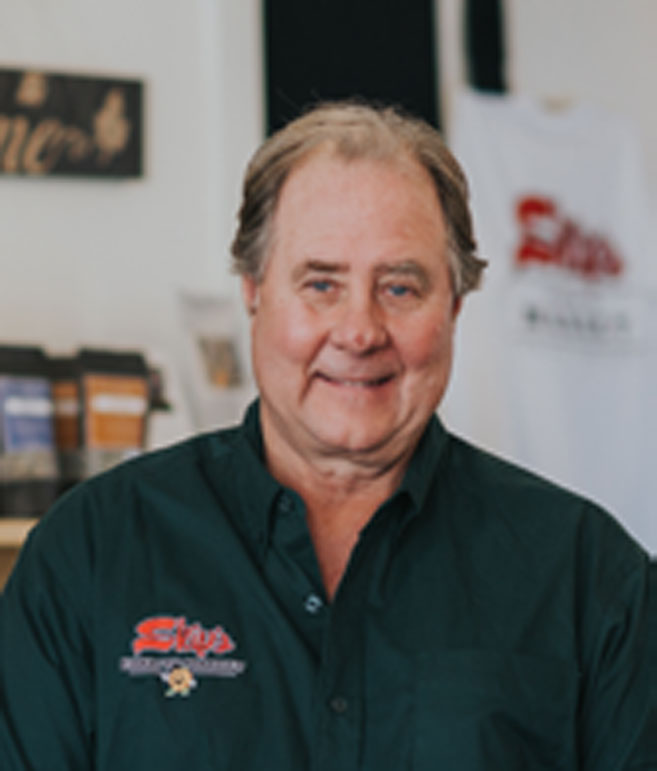
Skip’s Farm to Market
It would be simple to say stone fruit farmer Skip Doty is a farmer first and a businessman second, but his roles are so intertwined that the most appropriate title for him might be local food visionary. “I’ve watched how farmers have progressed here. Fifteen years ago there was hardly anything going on locally,” he says. “Since then there’s been a resurgence of younger people getting back to the agricultural roots of the Valley. I realized for the markets to be successful, I had to be part of that movement. I knew my leadership would come through by providing an outlet and a place for them to grow.”
Since 2003 Doty has owned Early Morning Orchard in Palisade, where he tends to 4,500 peach, nectarine and pluot trees and nearly six acres of vegetables. For years, he’s sold his produce at farmers’ markets in Basalt, Glenwood Springs and Rifle, and at his seasonal roadside stands at Buttermilk and Catherine’s Store, but in late 2017 Doty decided to open two brick-and-mortar retail outlets, called Skip’s Farm to Market. The first, a storefront in Old Town Basalt, sells fresh produce and prepared foods like dressings, jams and apothecary goods from Western Slope farmers, ranchers and food artisans.
The second location is in the former Silt Cafe, and Doty hopes to include a deli. “My experience as a farmer is that people want to eat good food and know where it’s coming from,” he says. SkipsFarmtoMarket.com | eA
NONPROFIT ORGANIZATION
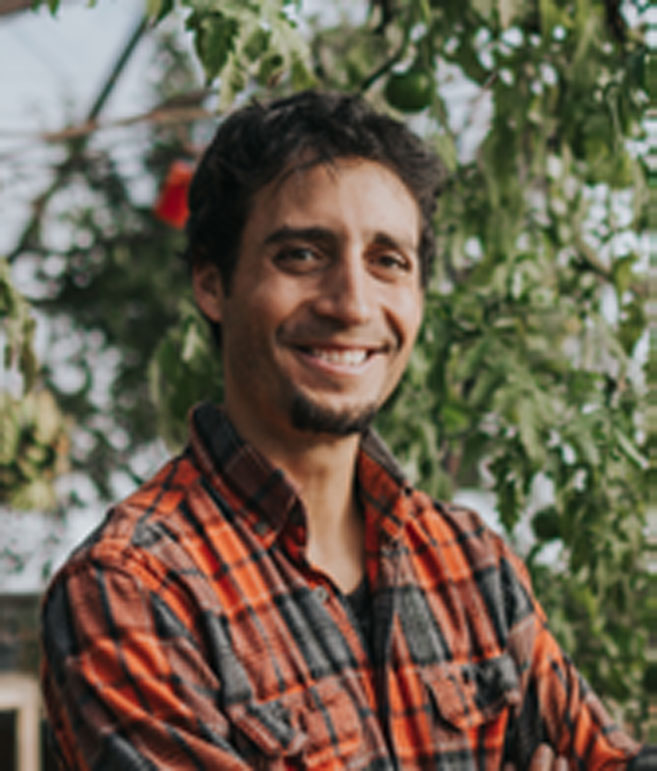
Aspen TREE
Since 2008, Eden Vardy, executive director of Aspen TREE, has used his nonprofit to educate the community— including kids—about sustainable agriculture and land stewardship. Programming includes the Earth Keepers Summer Camp, which offers gardening and traditional crafts like fiber weaving using wool from the resident alpacas, and a drop-in public Farm Park, which includes a greenhouse dome and working alternative energy systems. Now, following a new lease from the City of Aspen, Vardy plans to expand operations from two-thirds of an acre to 14. The additional land will enable Aspen TREE—located on Cozy Point Ranch since 2011—to add a U-pick fruit orchard and increase their vegetable production, as well as increase their integrative livestock production.
Most exciting are plans to launch a Farm to Community Education Center, which includes renting incubator plots to beginning farmers; and to start construction on an indoor space for educational endeavors, a community commercial kitchen and farm stand. There are also plans for a tool-lending library for farmers to check out and borrow equipment; and a year-round farm-to-table meal service.
Vardy’s vision is to have Aspen TREE become an agritourism destination and research center that draws visitors from all over the world, so they can see that local farming can sustain a community and play a key role in solving climate change challenges.
“If we can play a role in getting the message out and shifting the way we relate to our food system, we can make a profound impact on the world we leave for future generations,” he says. “Getting our hands in the dirt is such a direct and nourishing connection to the earth.” Aspen-TREE.org | eA
FOOD ARTISAN

Mark Hardin | Field2Fork Kitchen
Mark Hardin, owner of Carbondale-based catering company Field2Fork Kitchen, says after three years, his clients know his style and skill well enough to let him experiment. “When you start out, you’re influenced by customers,” he says. “But now, we’ve gotten to a point where people trust us and we can expand and bring new things to them.”
Hardin, a veteran of restaurant kitchens like the late Six89 in Carbondale and The Pullman in Glenwood Springs, makes a concerted effort to procure as many ingredients as possible from local farmers and ranchers, which in turn influences his menus. By planning his menus a year out, Hardin can work with farmers and ask them to grow specific varieties of vegetables. Hardin handcrafts much of his fare, inspired by a childhood spent gardening and cooking with his family. He makes his own pickles, preserves, fresh cheese and sourdough bread with a starter he made from saison yeast from the Roaring Fork Beer Company.
His craft extends to butchery, a skill uncommon for caterers. “I feel a deep responsibility to honor the livestock I work with,” he says. “This is what drives the desire to utilize every part, from nose to tail, especially when I know the farmers who put their time, energy and love into raising them.”
Hardin’s commitment to the local food movement and collaborative nature has led to a line of salad dressings, sausage and house-cured bacon, which will be available at the forthcoming Sunset Market in Willits. Field2ForkKitchen.com | eA
BEVERAGE ARTISAN
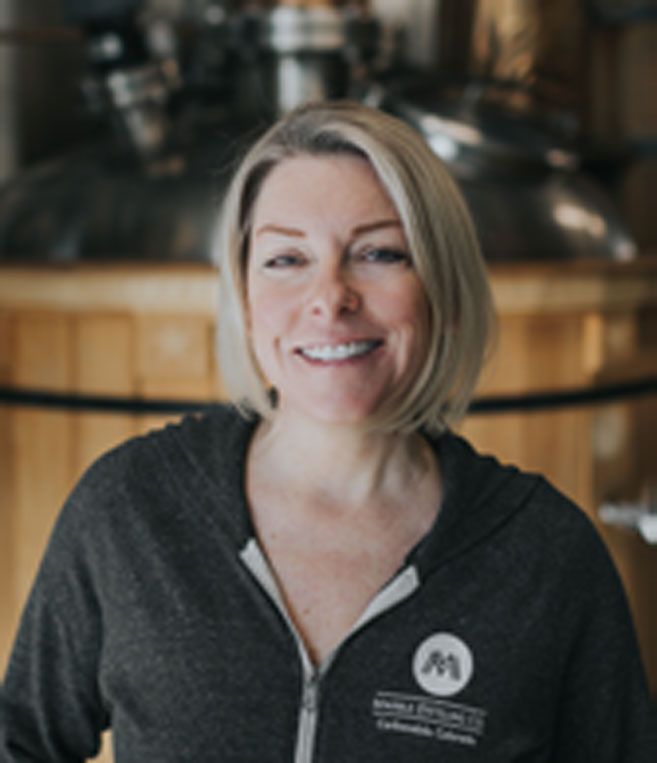
Connie Baker | Marble Distilling Co.
Keeping operations close to home and personal is the ethos that guides Connie Baker, co-founder and head distiller of Carbondale’s 3-year-old Marble Distilling Co. The grain for her spirits is grown by Colorado farms, the beans for her Moonlight EXpresso come from Bonfire Coffee, the water for the award-winning Vodka 80o is snowmelt courtesy of the Crystal River; everything is filtered through local Yule marble.
“As small craft distillers, we can switch it up quickly and try new things and new recipes. The big guys can’t do that,” says Baker. “With our whiskey, we’re shooting for different batches to see how the spirit has changed with different casks. It’s the small producers that are coming up with new and innovative ideas to create spirits that have never been on the market before or are reinventing lost spirits.”
The distillery is zero-waste. Says Baker, “Nothing goes down the drain, from the process water being 100-percent recycled, to all of the energy coming off the stills being captured to heat our building. All silage is recycled to the farms from which it came, and is used as supplementary animal feed. We call what we do ‘grain to glass to ground.’ It’s a beautiful, sustainable cycle all happening within our community.”
The distillery’s newest venture, Aspen’s first spirits tasting room open to the public, is located in the Hyatt Residence Club, Grand Aspen. Baker hopes that, like the flagship, it will become a gathering place that honors community and local flavors. MarbleDistilling.com | eA


